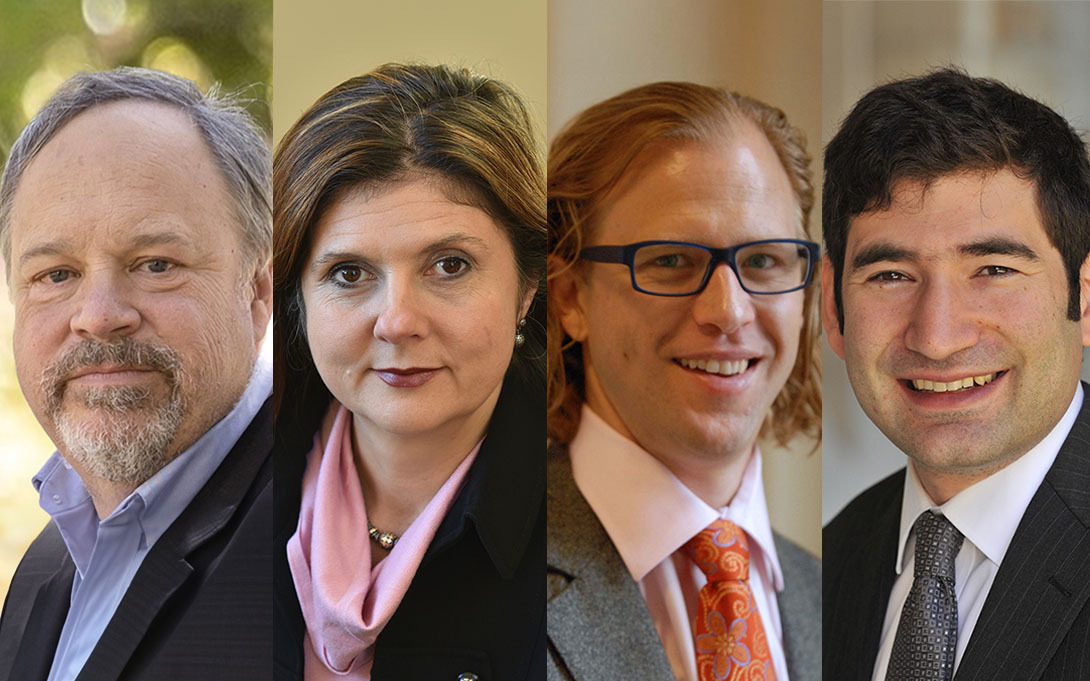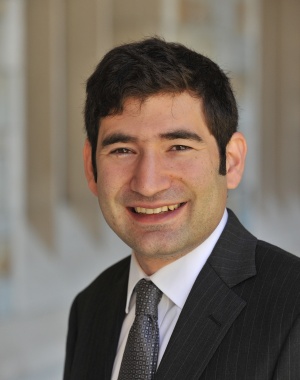
The threat of inflation seems to be receding and the possibility of a 'soft landing' is improving, according to a panel of economists at the Ford School.
Former Deputy Assistant Secretary of the Treasury for Economic Policy Brad DeLong, and Ford School professors Betsey Stevenson, Justin Wolfers, and Josh Hausman gave their views of the current state of the economy and the labor market in a discussion on September 18.
DeLong was at the Treasury Department from 1993-95 and came to the event from UC Berkeley, where he is a faculty member as a professor in economics. He shared his initial thoughts on the status of the economy, saying, “We had a brief outburst of inflation associated with the reopening of the economy from its plague depression and associated with the supply side consequences of Vladimir Putin’s attack on Ukraine.” But it has passed through the economy and is now receding, and the U.S. economy is very close to a very soft landing.
Stevenson added that the reason for inflation was that U.S. demand recovered before the supply chains could recover, which caused shortages. Demand was only able to recover so quickly because of the support that governments around the globe enacted to keep citizens housed and fed. Luckily, she said, many of the kinks in the economy that caused inflation have worked themselves out. Her biggest current concern is what inflationary pressure remains in the service sector, and how much bargaining power workers have to negotiate significant wage increases in those industries.
Wolfers pushed against the belief shared by Stevenson and DeLong that inflation has ended. DeLong rebuffed saying that unless a few “chaos monkeys” throw wrenches into the economy, the end of this inflationary spiral has occurred.
Hausman said inflation may have ended, but it is not the last time we will see it in the near future. The current auto workers strikes would have been on the radar of the Fed, given the economic conditions, leading Stevenson to counter that “if employers expect it, [the workers] should not be striking; [the employers] should be striking better deals before the strike happens.”
All of the panelists echoed the belief that most economic predictions of the economy were correct; they just focused on the wrong indicators. While they agreed the economy would continue well into the next year with low unemployment and inflation, there was disagreement about whether it would help the Democrats or Republicans in the 2024 elections.
Yet there are issues that still plague the economy. DeLong said that for the past 30 or so years, the individuals in charge of the economy have failed the average American. He cited rising healthcare costs, the privatization of pensions, and housing availability as examples. Stevenson highlighted the lack of laws and regulations that support women and families, like childcare and paid maternity leave. Hausman, in turn, highlighted the absence of an economy-wide rise in wages, especially in the public sector, like teachers.
DeLong is a renowned Economic Historian whose work focuses on why market prices may deviate from fundamental values, why the Marshall Plan mattered for Post-war Europe, and why policymakers’ memories of the Great Depression were responsible for high inflation in the 1970s. He recently published a book on 20th-century economic history titled Slouching Towards Utopia.
View the entire event here.


